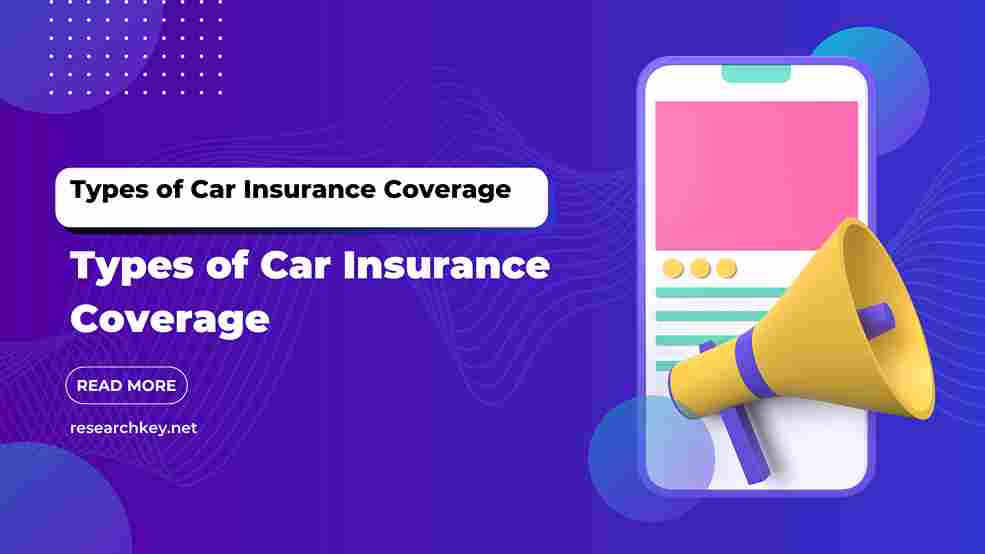Innovative Strategies and Trends in 901 Insurance
Introduction:
In the ever-evolving landscape of the insurance industry, the 21st century has brought forth a host of challenges and opportunities for insurers in the American context. With advancements in technology, changing consumer preferences, and the rise of new risks, insurance providers in the 901 area code and beyond are redefining their strategies to navigate risks and offer comprehensive coverage to their clients. This blog article will delve into the innovative strategies and trends that are shaping the 901 insurance market, ensuring individuals and businesses can safeguard their assets effectively.
- Embracing Digital Transformation:
Embracing Digital Transformation in the 901 Insurance Market
The insurance industry in the 901 area code has undergone a remarkable transformation with the integration of digital technologies. As technology continues to advance at an unprecedented rate, insurance companies are recognizing the need to adapt and evolve to meet the changing demands of customers in the 21st century.
One of the most significant aspects of this digital transformation is the shift towards offering online services. Insurers in the 901 area code are now providing their customers with the convenience of obtaining insurance quotes, purchasing policies, and managing their coverage online. This shift has not only streamlined the insurance process but has also enhanced customer experiences by reducing the need for physical paperwork and lengthy administrative processes. Clients can now compare different coverage options, customize their policies, and make payments with just a few clicks, making the entire insurance journey smoother and more efficient.
Moreover, digital technologies are revolutionizing underwriting processes. Insurance companies are leveraging big data analytics and artificial intelligence to assess risks more accurately and determine appropriate premiums. This data-driven approach allows insurers to gain insights into clients’ behaviors, habits, and preferences, enabling them to offer more personalized insurance solutions. Whether it’s evaluating driving patterns for auto insurance or assessing lifestyle choices for health coverage, these data-driven insights empower insurers to tailor policies that align with each client’s unique needs.
Claims processing has also seen significant improvements through digital transformation. Insurers are incorporating digital platforms and mobile apps that enable policyholders to file and track claims effortlessly. This not only expedites the claims settlement process but also fosters better communication and transparency between insurers and clients. Additionally, digital tools such as virtual claims inspections and online documentation submission have further reduced the need for in-person interactions, providing policyholders with faster and more convenient claim resolutions.
However, embracing digital transformation also comes with its challenges. As insurance companies increasingly rely on digital platforms and data storage, they must prioritize cybersecurity. The growing threat of cyberattacks and data breaches requires insurers to invest in robust security measures to safeguard sensitive customer information. Regular security audits, encryption protocols, and employee training on cybersecurity best practices are essential to ensure data protection and maintain customer trust in this digital age.
In conclusion, the 901 insurance market is witnessing a profound shift towards embracing digital transformation. By harnessing the power of technology, insurers are redefining the way they interact with customers, underwrite policies, and process claims. The move towards digital platforms has not only improved operational efficiency but has also empowered policyholders with more personalized, convenient, and secure insurance experiences. As the industry continues to embrace innovative digital solutions, it will undoubtedly pave the way for a more customer-centric and forward-thinking insurance landscape in the 21st century.
FURTHER READING:Empowering Insurance Professionals
- Personalization and Customization:
Personalization and Customization in the 901 Insurance Market
In the fast-paced and dynamic landscape of the 21st-century insurance market, one of the key trends that have emerged in the 901 area code is the focus on personalization and customization of insurance products. Insurance companies are realizing that a one-size-fits-all approach is no longer sufficient to meet the diverse needs and preferences of their customers. As a result, they are embracing innovative strategies to tailor insurance coverage to each individual’s or business’s specific requirements.
Personalization starts right from the initial stages of the insurance process – the underwriting phase. By leveraging advanced data analytics and AI technologies, insurers can gather valuable insights about their customers’ lifestyles, habits, and behaviors. For instance, for auto insurance, telematics devices can track driving patterns, allowing insurers to assess risk based on actual driving performance rather than general statistical data. Similarly, for health insurance, wearable devices can monitor individuals’ health metrics, enabling insurers to offer personalized health plans that align with their unique wellness goals.
Beyond data-driven personalization, insurers are also focusing on understanding their customers’ life stages and life events. This empathetic approach allows insurance companies to anticipate their clients’ changing needs and offer coverage that adapts accordingly. For instance, young families may require different insurance coverage than retirees or newly established businesses may have different risk profiles compared to well-established corporations. By taking these factors into account, insurers can provide tailored policies that address their clients’ current circumstances and future aspirations.
Customization is another vital aspect of the personalization trend in the 901 insurance market. It enables policyholders to select coverage options and add-ons that align precisely with their preferences and priorities. Customers have the flexibility to choose from a range of coverage limits, deductibles, and optional riders to create a policy that perfectly suits their needs. This sense of control and transparency empowers policyholders, giving them a greater sense of confidence in their insurance choices.
The rise of personalization and customization has extended beyond individual insurance policies. Businesses in the 901 area code are also benefiting from tailored commercial insurance solutions. Insurance providers are collaborating with businesses to assess their unique risks and create comprehensive coverage that safeguards against industry-specific challenges. Whether it’s protecting against cyber threats for technology companies or addressing professional liability for consulting firms, custom-tailored insurance solutions provide businesses with peace of mind and confidence in their risk management strategies.
In conclusion, personalization and customization have become integral to the 901 insurance market, shaping the way insurers interact with their customers and design insurance products. By embracing data-driven insights, understanding life stages, and providing flexible policy options, insurers are enhancing customer satisfaction and loyalty. This trend not only ensures that policyholders receive coverage that aligns with their specific needs but also fosters a stronger and more meaningful relationship between insurers and their valued clients. As the insurance industry continues to evolve, personalization and customization will remain key differentiators, driving its growth and relevance in the 21st century.
- Emphasis on Cybersecurity:
Emphasis on Cybersecurity in the 901 Insurance Market
In the digital age, where businesses and individuals are increasingly reliant on technology and online platforms, the importance of cybersecurity has grown exponentially. The 901 insurance market is not exempt from these cyber risks, and as a result, insurers are placing a significant emphasis on cybersecurity to protect their clients from ever-evolving cyber threats.
Insurance companies in the 901 area code have recognized that traditional insurance policies may not adequately cover the unique risks posed by cyber incidents. In response, they are now offering specialized cybersecurity insurance coverage tailored to address the complexities of cyber risks. These policies go beyond general liability insurance and focus on protecting businesses and individuals against data breaches, cyberattacks, and other digital threats.
The emphasis on cybersecurity is not only directed towards offering coverage but also towards providing proactive risk management and prevention services. Insurance companies are partnering with cybersecurity experts to conduct risk assessments for their clients. These assessments help businesses identify vulnerabilities and potential weak points in their digital infrastructure, allowing them to take corrective measures to fortify their defenses against cyber threats.
For businesses, the financial repercussions of a cyber incident can be significant, with costs associated with data recovery, regulatory fines, and potential lawsuits. In light of this, insurers are increasingly incorporating comprehensive coverage for cyber-related financial losses. This includes coverage for business interruption due to a cyber event, ransomware payments, and legal expenses incurred as a result of data breaches. By offering robust financial protection, insurers in the 901 area code are assisting businesses in mitigating the adverse effects of cyber incidents and reducing the potential for long-term financial damage.
Individuals are not left behind in the cybersecurity landscape either. With the increasing number of online transactions and data breaches, individuals face the risk of identity theft and financial fraud. Recognizing this, insurance companies are developing cybersecurity insurance products aimed at protecting individuals from such risks. These products often include coverage for financial losses resulting from identity theft, online fraud, and unauthorized access to personal information.
As cyber threats continue to evolve, so does the emphasis on cybersecurity in the 901 insurance market. Insurers are continually updating their policies to stay ahead of emerging risks and provide comprehensive coverage that aligns with the ever-changing digital landscape. Additionally, insurers are investing in cutting-edge technologies and cybersecurity expertise to enhance their own security measures. This ensures that customer data is protected against breaches, thereby maintaining the trust and confidence of policyholders.
In conclusion, the emphasis on cybersecurity in the 901 insurance market is a reflection of the increasing significance of cyber risks in the 21st century. Insurance companies are rising to the challenge by providing specialized coverage, risk management services, and financial protection against cyber incidents. By taking proactive measures to safeguard their clients and their own digital infrastructure, insurers are playing a crucial role in mitigating the potentially devastating consequences of cyber threats, contributing to a safer and more secure digital landscape for businesses and individuals alike.
- Sustainable and Climate-Resilient Insurance:
Sustainable and Climate-Resilient Insurance in the 901 Insurance Market
The impact of climate change has become increasingly evident, with more frequent and severe weather events affecting communities and businesses alike. In response to these challenges, the 901 insurance market has witnessed a growing emphasis on sustainable and climate-resilient insurance offerings. Insurers are recognizing the need to address climate-related risks and support sustainable practices to ensure the long-term viability of their clients and the planet.
One of the key components of sustainable insurance is promoting environmentally friendly practices and initiatives. Insurers in the 901 area code are collaborating with businesses to encourage the adoption of sustainable practices that reduce their carbon footprint. This includes offering incentives and discounted premiums to businesses that implement eco-friendly measures, such as energy-efficient technologies, waste reduction strategies, and sustainable supply chain practices. By rewarding sustainable behavior, insurers are not only contributing to the global environmental cause but also fostering a more sustainable and resilient business community.
Furthermore, sustainable insurance products are extending to renewable energy projects. With the increasing demand for clean energy sources, insurance companies are developing specialized insurance solutions that cater to the unique risks faced by renewable energy providers. These solutions encompass coverage for potential damages to equipment, loss of income due to unforeseen events, and liability protection, among others. By providing comprehensive coverage tailored to the renewable energy sector, insurers are supporting the transition to a greener energy future.
Climate-resilient insurance is another critical aspect of the sustainability trend in the 901 insurance market. As climate-related risks continue to escalate, individuals and businesses face an increased likelihood of property damage, business interruption, and financial losses due to extreme weather events. To address these challenges, insurers are developing climate-resilient insurance policies that offer comprehensive coverage against a wide range of climate-related perils. This may include coverage for damages caused by hurricanes, floods, wildfires, and other extreme weather events.
In addition to offering climate-resilient policies, insurers are also investing in climate risk modeling and analytics. By analyzing historical weather data and projections, insurance companies can better assess the potential impact of climate change on their portfolios and pricing. This enables insurers to accurately evaluate and price risks, ensuring that coverage remains affordable and accessible even in areas prone to climate-related events.
Beyond individual insurance policies, the insurance industry as a whole is also making strides towards sustainability. Many insurers are adopting sustainable practices within their own operations, such as reducing paper usage, implementing energy-efficient technologies, and supporting environmental initiatives. This commitment to sustainability aligns with the growing expectations of customers who are increasingly seeking environmentally responsible partners.
In conclusion, sustainable and climate-resilient insurance has emerged as a crucial focus in the 901 insurance market. By promoting sustainability, incentivizing eco-friendly practices, and offering climate-resilient coverage, insurers are taking proactive steps to address the challenges posed by climate change and support a more resilient future. As climate risks continue to evolve, the insurance industry’s dedication to sustainability not only protects the interests of its clients but also contributes to a more sustainable and resilient society as a whole.
- Leveraging Telematics for Auto Insurance:
Leveraging Telematics for Auto Insurance in the 901 Insurance Market
Telematics, a blend of telecommunications and informatics, has revolutionized the auto insurance industry in the 901 area code. This technology involves the use of devices that collect and transmit real-time data on driving behavior and vehicle performance. Insurers are increasingly leveraging telematics to offer usage-based insurance (UBI) and reward safe driving practices, leading to a more personalized and cost-effective approach to auto insurance.
Telematics devices, commonly referred to as “black boxes” or “dongles,” are installed in vehicles to track various driving metrics. These metrics include speed, acceleration, braking patterns, distance traveled, and even the time of day when the vehicle is in use. By gathering such granular data, insurers gain valuable insights into how each policyholder drives and the associated risk levels. Safe drivers who exhibit cautious and responsible behavior on the road can benefit from reduced premiums, creating a direct incentive for policyholders to adopt safer driving habits.
With telematics-based auto insurance, the traditional “one-size-fits-all” approach to pricing is replaced by a more individualized and fair assessment of risk. Instead of relying solely on general statistical data, insurers can now base premiums on actual driving performance. This shift from predictive risk models to data-driven assessments allows insurers to offer personalized policies that better align with each policyholder’s risk profile. Young and inexperienced drivers, for instance, may see their premiums decrease if they demonstrate safe driving behavior, fostering a positive incentive for responsible driving from the outset.
Telematics also facilitates improved transparency between insurers and policyholders. By accessing their driving data through online portals or mobile apps, policyholders can monitor their driving habits, understand their risk factors, and receive personalized feedback from insurers. This level of transparency empowers policyholders to take charge of their driving behavior and make informed decisions that could lead to lower insurance costs over time.
Furthermore, telematics-based auto insurance not only benefits policyholders but also has a broader impact on road safety and traffic management. By incentivizing safer driving practices, insurers contribute to the overall reduction of accidents and road incidents, making roads safer for everyone. Additionally, telematics data can be used to identify traffic patterns, congested areas, and accident-prone zones, enabling city planners and traffic authorities to make data-driven decisions for improved urban mobility.
As with any technological innovation, telematics-based auto insurance also presents challenges. Concerns related to data privacy and cybersecurity must be addressed to ensure that policyholders’ driving data remains secure and confidential. Insurers must implement robust data protection measures and obtain explicit consent from policyholders for data collection and usage.
In conclusion, telematics has emerged as a game-changer in the 901 auto insurance market. By leveraging real-time driving data, insurers can offer more personalized and cost-effective coverage to policyholders, fostering safer driving habits and creating a win-win situation for all stakeholders. As technology continues to advance, telematics will likely play an even more significant role in reshaping the auto insurance landscape, making it more customer-centric, data-driven, and focused on promoting road safety.
Conclusion:
Innovative strategies and trends in 901 insurance are redefining the industry’s landscape in the American context. By embracing digital transformation, personalizing coverage, prioritizing cybersecurity, promoting sustainability, and leveraging telematics, insurers in the 901 area code are empowering their clients to navigate risks effectively and maximize their coverage in the dynamic 21st-century landscape. As technology and consumer preferences continue to evolve, the insurance industry will undoubtedly witness further innovations, ensuring protection and peace of mind for policyholders across the nation.
901 Insurance, 901 Insurance, 901 Insurance, 901 Insurance, 901 Insurance
901 Insurance, 901 Insurance, 901 Insurance, 901 Insurance, 901 Insurance
901 Insurance, 901 Insurance, 901 Insurance, 901 Insurance, 901 Insurance



